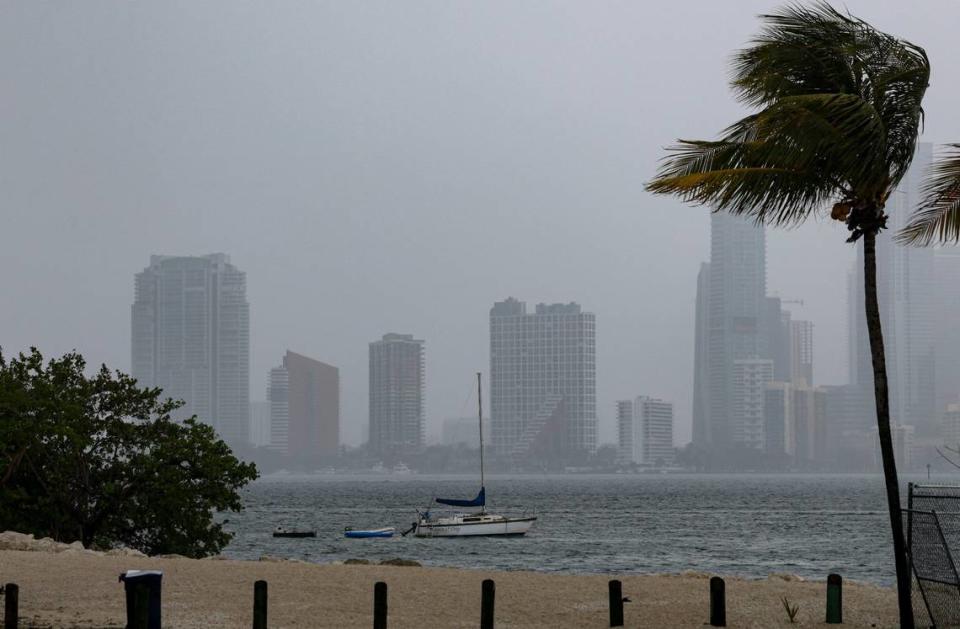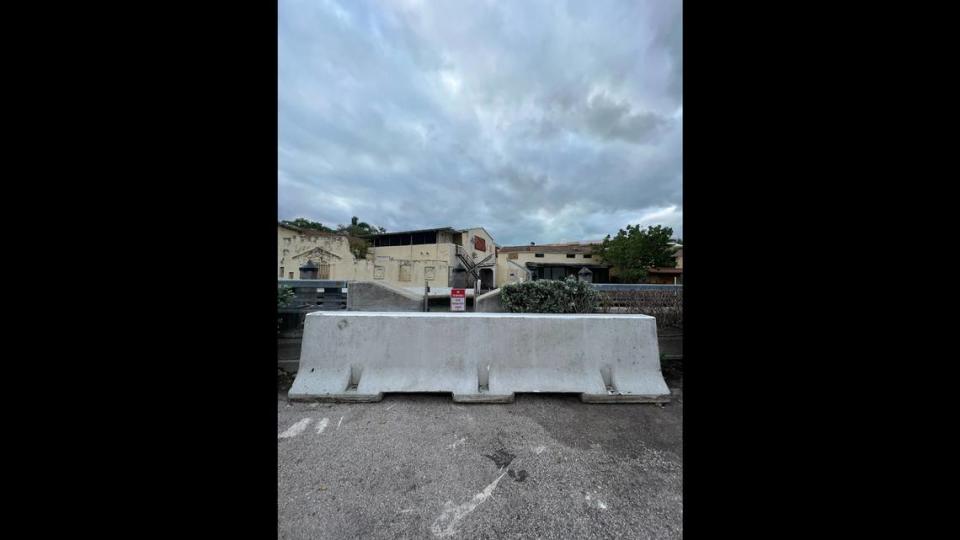As boaters and Miami Beach officials fight, lawmakers move to restrict anchoring
Miami-Dade boaters may face more limitations on where they can anchor their vessels based on a proposal that passed in the Florida House and is moving favorably in the Senate.
The legislation aims to target overnight anchoring in Biscayne Bay, which lawmakers say would help solve concerns about environmental damage in the area and the safety of recreational boaters.
But critics of the legislation say it infringes on the rights of boat owners, leaves liveaboard boaters with fewer options and unfairly blames them for the issues cited by lawmakers.
The House version of the bill passed Thursday evening. It would prevent boaters from anchoring at night in waterways between the Venetian Islands and around Palm Island.
The Senate bill is set to be voted on next week, but it differs slightly from the House Bill. The language would need to be sorted out between the two bills in order to make it to the governor’s desk.
“The area addressed in the bill is a very popular recreational boating area, perhaps the most traveled in the state, but at this moment permanently moored boats are creating a hazard situation for recreational boaters,” said South Florida Republican and sponsor of the Senate bill, Ileana Garcia.
“More importantly, considerable damage is being done to the environment in this portion of Biscayne Bay as human waste and trash is not properly disposed of by irresponsible boaters.There’s still plenty of locations in Biscayne Bay for overnight anchoring. The bill does not completely shut down the geographic area,” said Garcia.
Opponents of the bill say that boaters aren’t the central cause of the problems.
Tension between boaters and Miami Beach commission
Liveaboard boaters and the Miami Beach Commission have been at odds since the end of last year after the commission voted to remove a dock popular with local liveaboard boaters that they say assisted them to get food and water from the mainland.
Commissioner David Suarez has been spearheading the initiative to enforce stricter measures on liveaboard boaters in the area and said that he’s “disappointed” that the legislation has been watered down to cover less area than what was initially planned.
“It’s only going to help out those particular areas and I’m not a fan of just taking bites at the apple. The way I view things is that everyone should benefit from good legislation,” said Suarez in an interview with the Miami Herald.
While he said that environmental and safety issues were big concerns that he had with liveaboard boaters in Biscayne Bay, he also said he believes that short-term vacation rentals on liveaboard boats are growing in popularity in Miami Beach.
“There’s absolutely nothing that we can do as a city to regulate that and so that’s a big concern for the commission because now, it’s not just a liveaboard community, it’s going to be an out-of-control enterprise of short-term rentals and business that unfortunately we’re preempted from” regulating, said Suarez.
Carlos Leon, the organizer of the Miami Beach Boaters Association, noted that in January the Miami Beach Police and the Florida Fish and Wildlife Conservation Commission conducted a search of various liveaboard boats that showed that only two out of 39 boats were cited for improperly disposing of their waste, saying the real damage to the Bay is caused from breaks in the sewage lines.
“That narrative of us damaging the bay, it’s not true. This is our backyard. This is where we live. This is where we swim. Do you think if we were throwing our waste in it we’d be swimming in the water?,” said Leon in an interview with the Miami Herald.
Suarez said he does not view that sanitation check as significant, saying that it only covered a small portion of the liveaboard community in the area and that he believes there are simple ways to cover your tracks if you have been improperly dumping sewage.
Leon said he doesn’t agree with the legislation. He says blocking off the areas around the Venetian Islands is “understandable” given the expensive property in those sections, but he fears that the legislation will give way to more laws in the future that could restrict more areas of Biscayne Bay.
“I think we just want people to see us as humans,” Leon said. “It’s very saddening to be labeled as criminals. I’ve been a resident of South Beach since 10 years ago so for my community, the one that I worked in, the one I lived in, to tell me ‘oh, you’re not welcome here’ is very saddening.”
What’s in the House and Senate bills?
HB 437 effectively designates additional portions of Biscayne Bay as “anchoring limitation areas.”
The bill states that a person may not anchor a vessel at any time during the period between one-half hour after sunset and one-half hour before sunrise in the waterways between San Marino Island and Di Lido Island, Rivo Alto Island and Di Lido Island and between Palm Island and the MacArthur Causeway.
It states that if a vessel is questioned by law enforcement for being in an anchoring limitation area, they must provide proof of their location with documentation showing that the vessel was in another location at least “1 nautical mile away” within a period of less than 45 days before the inquiry.
The bill also says that electronic evidence can be used for this, including, but not limited to, navigational devices or tracking devices, but they must be permanently affixed to the vessel. If the boat owner fails or refuses to provide proof to law enforcement, they can be issued a citation.
Current state statutes make the following exceptions for using anchoring limitation areas:
If the boat has a mechanical failure that poses an unreasonable risk of harm to the vessel or the people onboard, if imminent or existing weather conditions in the vicinity pose a risk to the vessel or the people onboard or if the vessel is attending “a regatta, race, marine parade, tournament, exhibition or other special event.”
The Senate version of the bill does not include the area between Rivo Alto Island and Di Lido Island as an anchoring limitation area.




